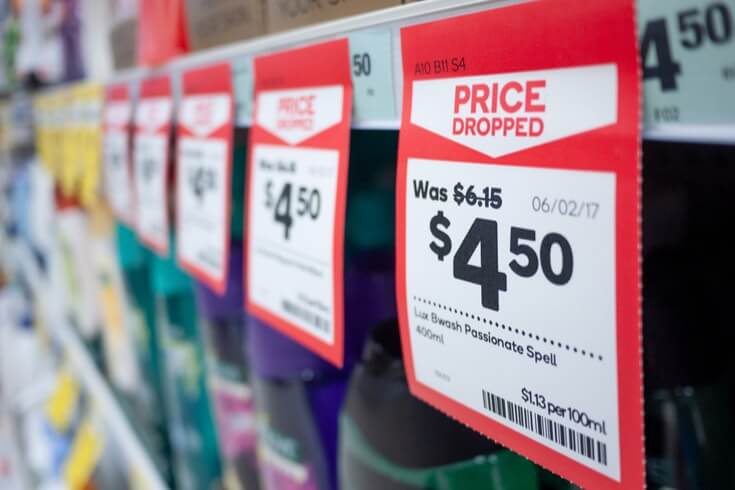Shareholder Rights in Japanese Corporate Law: Diverse Means to Ensure Proper Conduct of Directors

In Japanese stock corporations, management is delegated to the board of directors and individual directors. However, this delegation is not absolute, and shareholders, as the owners of the company, play a crucial role in overseeing whether the management is conducted appropriately and legally. This supervisory power held by shareholders is essential for the sound operation of the company and the maintenance of corporate value. Many people recognize the ‘shareholder derivative lawsuit’ as the most well-known right, which allows shareholders to pursue the responsibility of directors on behalf of the company and seek compensation for damages when the company suffers due to the misconduct of directors. This lawsuit is a powerful means to retrospectively recover damages that have occurred.
However, the powers granted to shareholders under Japanese Corporate Law do not stop at the retrospective recovery of damages. Rather, a diverse and sophisticated legal toolkit is available to ensure the propriety of the company’s operations more proactively and preventatively. These rights substantively support the ‘principle of shareholder equality’ as stipulated in Article 109, Paragraph 1 of the Japanese Corporate Law. This principle obligates the company to treat all shareholders equally according to the content and number of rights they hold, providing a foundation to prevent situations where the interests of the entire company are compromised by the intentions of a few shareholders. This article focuses on three important rights other than the shareholder derivative lawsuit that embody this principle: the ‘right to demand an injunction against illegal acts,’ the ‘right to demand the appointment of an inspector,’ and the ‘right to demand the appointment of an auditor.’ These rights possess preventive functions to avert the occurrence of damages, investigative functions to eliminate opacity in management, and expansive functions that enable the pursuit of responsibility across complex corporate groups, serving as powerful tools for shareholders to effectively ensure corporate governance.
Preventing Director Misconduct in Advance: The Right to Demand Injunction Against Illegal Acts Under Japanese Corporate Law
Overview and Legal Basis of the System
Among the rights held by shareholders, the most direct and preventative is the “Right to Demand Injunction Against Illegal Acts.” This right aims to prevent the execution of illegal acts by directors that could cause irreparable damage to the company. It holds significant importance as a preemptive remedy, in contrast to shareholder derivative lawsuits that seek recovery after damage has occurred.
The legal basis for this right is found in Article 360, Paragraph 1 of the Japanese Companies Act. According to this provision, shareholders can demand that directors cease actions that fall outside the scope of the company’s objectives or violate other laws or the articles of incorporation, when such actions are likely to cause “significant damage” to the company. There are two requirements for exercising this right: first, the director’s act must violate laws or the articles of incorporation; second, the act must present a concrete risk of causing “significant damage” to the company. Importantly, this demand can only be made against future actions or those currently ongoing; it cannot stop actions that have already been completed.
Because corporate decision-making is often swift, normal litigation procedures frequently fail to achieve the objective of an injunction. Therefore, in practice, this right is commonly exercised through a “provisional disposition order,” a preservation procedure that allows courts to make rapid decisions.
Japanese Case Law
To illustrate the judicial approach to this right of injunction, a decision by the Supreme Court of Japan on September 24, 2002, serves as a reference, although it was not a direct case of corporate law. The case involved a privacy infringement related to the novel “Fish Swimming in Stone,” where the court established that a preemptive injunction should be granted when an infringement act is clearly anticipated, likely to cause the victim significant and difficult-to-recover damage, and when subsequent recovery would be significantly challenging. This concept of “significant and difficult-to-recover damage” underpins the interpretation of “significant damage” in the Companies Act, suggesting how the courts limit preventive injunctions to cases of grave importance.
As an example of application in actual corporate legal affairs, there is a provisional disposition order case related to Claire Holdings decided by the Tokyo District Court on February 17, 2021. In this case, a shareholder sought an injunction against specific acts related to an extraordinary general meeting of shareholders, but the court dismissed the petition. This example demonstrates the court’s strict scrutiny of the “significant damage” requirement, indicating that the right serves as a “corporate emergency brake,” functioning only in exceptional circumstances where a truly serious crisis is imminent for the company. Therefore, shareholders exercising this right must not only point out a violation of the law but also concretely prove that the act poses a serious threat that could shake the very existence of the enterprise.
Ensuring Transparency in Management: The Right to Request the Appointment of an Inspector Under Japanese Corporate Law
Overview of the System and Legal Basis
In Japanese corporations, a significant amount of management-related information is concentrated among the executives, creating a substantial asymmetry of information between them and the shareholders. If shareholders cannot access accurate information, their rights become merely nominal. To eliminate this information disparity and ensure transparency in management, a powerful tool is available: the right to request the appointment of an inspector.
This right is stipulated in Article 358 of the Japanese Companies Act. Shareholders holding at least one-third of the total voting rights can file a petition with the court to appoint an inspector when there is sufficient reason to suspect acts of impropriety or significant facts in violation of laws or the articles of incorporation in the execution of the company’s business.
When the court approves this petition, it appoints a neutral third party, such as an attorney or certified public accountant, as the inspector. The appointed inspector, with legal authority, investigates the company’s business operations and financial status. This investigative power is extensive and can extend to subsidiaries if necessary. Upon completing the investigation, the inspector compiles the findings into a detailed report and submits it to the court. A copy of this report is also provided to the shareholder who filed the petition. Based on the report, the court can order the company’s directors to convene a shareholders’ meeting to report the findings if deemed necessary.
Japanese Case Law
An exemplary case demonstrating how the right to request the appointment of an inspector functions is the decision made by the Mito District Court, Shimotsuma Branch, on February 28, 2023 (Reiwa 5). The court granted the shareholder’s petition and decided to appoint an inspector. Notably, the scope of the investigation ordered by the court was extensive, covering not only accounting fraud but also the following areas:
- Compliance systems with labor-related laws such as the Japanese Labor Standards Act
- Proper enrollment in social and labor insurance
- Compliance systems related to the operation of shareholders’ meetings under the Companies Act
- Compliance systems for the creation and preservation of accounting books under the Companies Act
- Compliance systems with tax laws such as the Corporate Tax Law
This decision clearly indicates that the court interprets “acts of impropriety” and “significant facts” mentioned in Article 358 of the Companies Act to include not only specific fraudulent acts but also broader and more structural issues such as the lack of a fundamental compliance system within a corporation. As a result, the right to request the appointment of an inspector has evolved from a mere tool for investigating misconduct to a means of conducting a comprehensive health check of a corporation, backed by the authority of the court. Shareholders can shed light on the black box of management through this right and secure objective and reliable evidence. The findings from such investigations can serve as a strong foundation for further legal actions, such as claims for injunctions against illegal activities or shareholder derivative lawsuits.
Comparing Shareholder Oversight Powers Under Japanese Corporate Law
As we have seen, Japanese Corporate Law grants shareholders multiple rights with different purposes and functions to ensure the propriety of a company’s operations. These rights not only function individually but also work in conjunction to realize more effective corporate governance. By using the shareholder derivative suit as a benchmark, the differences in strategic roles become clear when compared with the demand for an injunction against illegal acts and the right to request the appointment of an inspector.
The right to demand an injunction against illegal acts is a preventative right that intervenes ‘before’ damage occurs. Its purpose is to halt the illegal act itself, not to seek financial recovery. In contrast, the right to request the appointment of an inspector is a right to conduct an ‘investigation’ when there is suspicion of management misconduct but no concrete evidence. The goal here is to clarify the facts through a neutral third party and to ensure the transparency of management. Meanwhile, the shareholder derivative suit is a post-event remedy aimed at pursuing the individual responsibility of directors and obtaining monetary compensation for the company after damage has occurred.
These rights have clear differences in timing (pre-event, during, post-event), purpose (injunction, investigation, compensation), targets (acts, information, individual officers), and strategic roles (emergency brake, information gathering, financial recovery). Shareholders are required to appropriately select or combine these rights depending on the situation they face.
Conclusion
As detailed in this article, Japanese Corporate Law grants shareholders, as the owners of a company, powerful and multifaceted rights to oversee management and ensure its propriety. The well-known shareholder derivative lawsuit is merely one means of retroactively recovering damages that have occurred. Prior to that, the right to demand an injunction against illegal acts serves as a ‘preventative’ measure to avert damage before it happens, and the right to request the appointment of an inspector plays an ‘investigative’ role in shedding light on management’s lack of transparency. These rights provide shareholders with strategic options tailored to the situation to ensure the healthy operation of the company.
Monolith Law Office has a wealth of experience in advising and representing a diverse range of domestic and international clients on issues related to corporate governance and shareholder rights, as discussed in this article. Our firm includes several English-speaking professionals, some of whom are qualified as foreign attorneys, enabling us to support our clients from an international perspective on Japan’s complex legal system. Shareholders concerned about the propriety of company management, or corporate managers aiming to establish an appropriate governance structure, are encouraged to consult with our firm.
Category: General Corporate





















